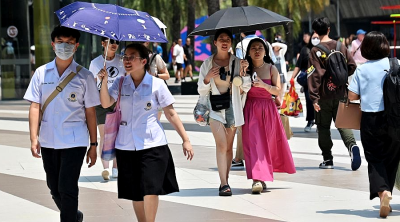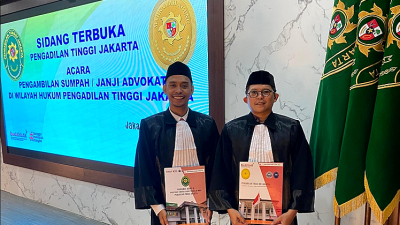
PETALING JAYA: As society becomes more relaxed about the perceived threat of Covid-19, the coronavirus has started to resurge in many countries, leading to an increase in reported cases.
Between May 25 and 30, Thailand reported 65,880 new Covid-19 cases with three fatalities.
Indonesia’s Health Ministry issued a public health advisory following a resurgence of cases in several Asian countries. It urged citizens to remain vigilant and adopt precautionary measures.
Both Hong Kong and the United States have reported an uptick in Covid-19 cases linked to the NB.1.8.1 variant.
Singapore reported over 14,000 cases between Apr 27 and May 3.
In Malaysia, the Health Ministry said an average of 600 cases were reported each week between Apr 14 and May 10.
Malaysia reported over 11,000 cases between Jan 1 and May 10. These are the last available numbers released by the ministry.
Prof Dr Sharifa Ezat Wan Puteh, Universiti Kebangsaan Malaysia’s professor of Public Health Medicine, said people have become lax as Covid-19 is no longer seen as a major threat now. People should be aware of the mutation of the virus and the new variants that would appear, she added.
“The most recent designated variant under monitoring (VUM) is NB.1.8.1, and it is considered highly transmissible but does not indicate higher virulence, or risk of hospitalization or deaths.
“It has been stated that the current vaccine’s coverage also covers the current strain and those at high risk such as the elderly, young children, pregnant women and those with high comorbidity need to be vigilant,” she added.
She said high-risk groups should wear a mask when they are outdoors or if they develop symptoms. Those with non-communicable diseases (NCDs) should not miss their medication schedule.
“If you have Covid-19-like symptoms, it could also be adenovirus (usually mild), Respiratory Syncytial Virus (RSV) and/or influenza,” she said.
This can be determined by testing for Covid-19, or by visiting your healthcare provider for treatment and admission if necessary.
“The symptoms may mimic each other, or you can catch two diseases at the same time which is rare, but can occur,” she added.
She said this new variant seems to cause symptoms such as fever, cough, sore throat, fatigue, headache and gastrointestinal distress.
“Besides antigen testing, you may need to get a chest X-ray and blood test for confirmation to rule out pneumonia.
Covid generally presents as non threatening symptoms of upper respiratory tract infection and no need to follow up with MySejahtera app (like before),” she said.
Former Health Ministry official and public health expert Datuk Dr Zainal Ariffin Omar said the rise in cases could be due to decreasing immunity either from natural infection or immunization and people no longer observing precautionary measures like before.
The World Health Organization (WHO) said on May 28 that since February, global SARS-CoV-2 activity has been on the rise, with the test positivity rate reaching 11 percent—levels that have not been observed since July 2024.
“This rise is primarily observed in countries in the Eastern Mediterranean, Southeast Asia and Western Pacific regions. Since early 2025, global SARS-CoV-2 variant trends have slightly shifted.
“Circulation of LP.8.1 has been declining, and reporting of NB.1.8.1, a VUM, is increasing, reaching 10.7 percent of global sequences reported as of mid-May.”
Recent increases in SARS-CoV-2 activity are broadly consistent with levels observed during the same period last year.
However, there still lacks a clear seasonality in SARS-CoV-2 circulation, and surveillance is limited, it said.
WHO also advised all member states to continue monitoring and applying a risk-based and integrated approach to managing Covid-19.
ADVERTISEMENT
ADVERTISEMENT








































